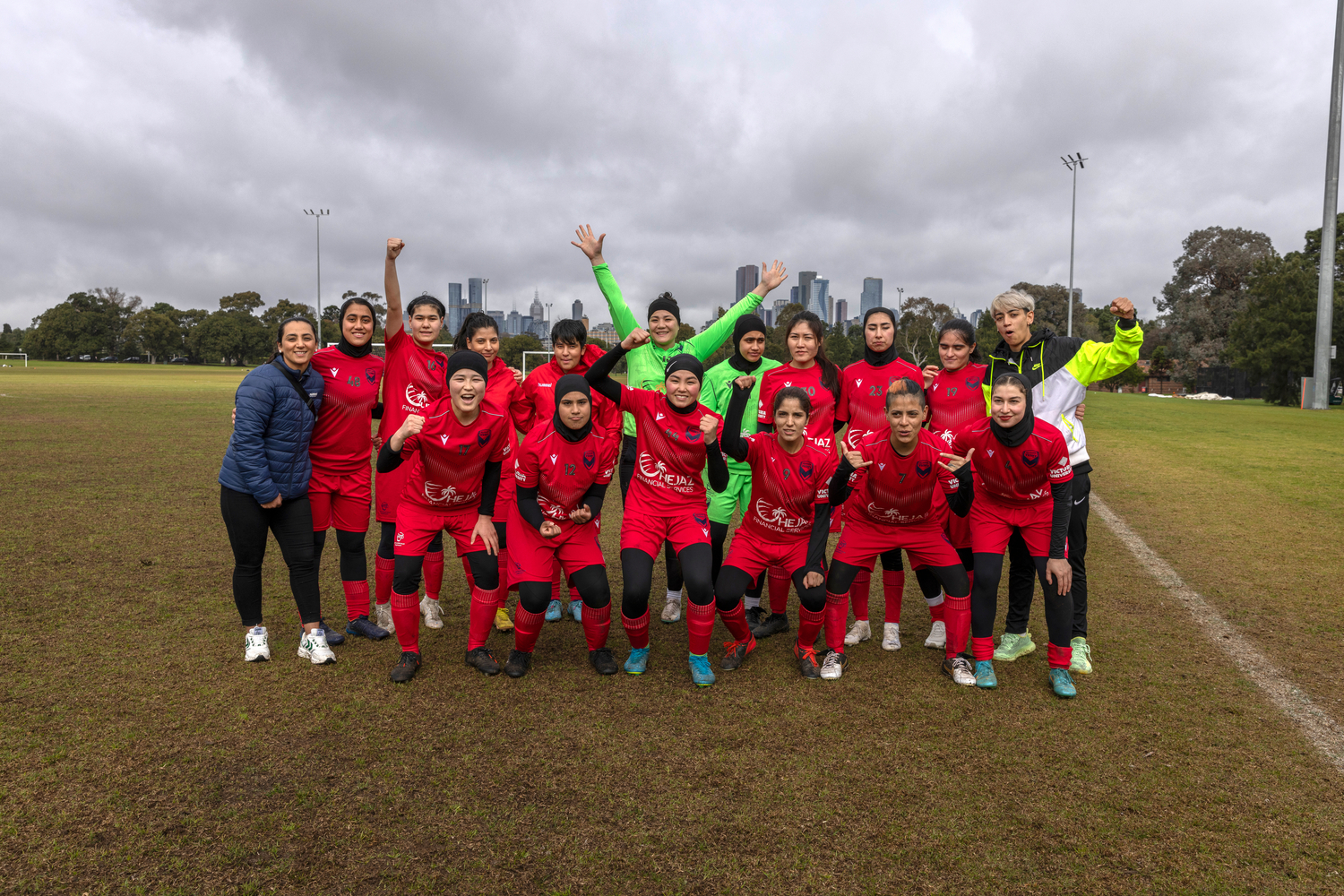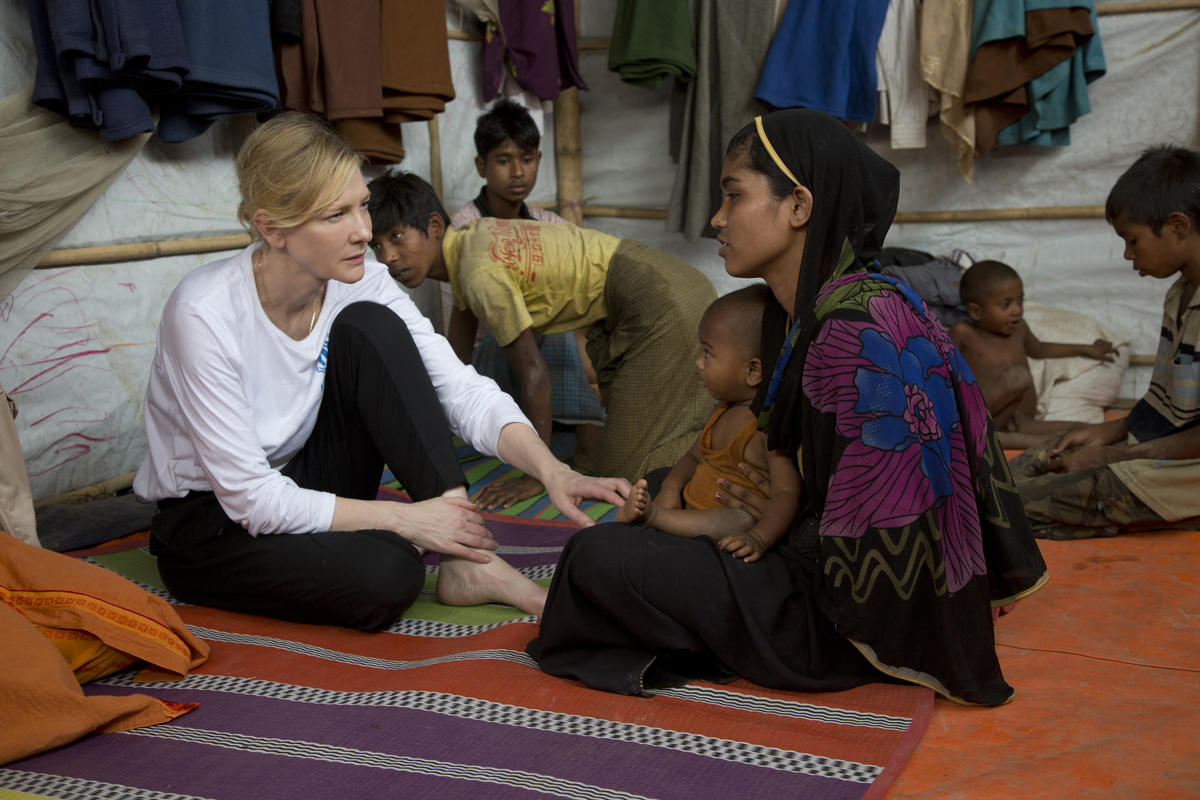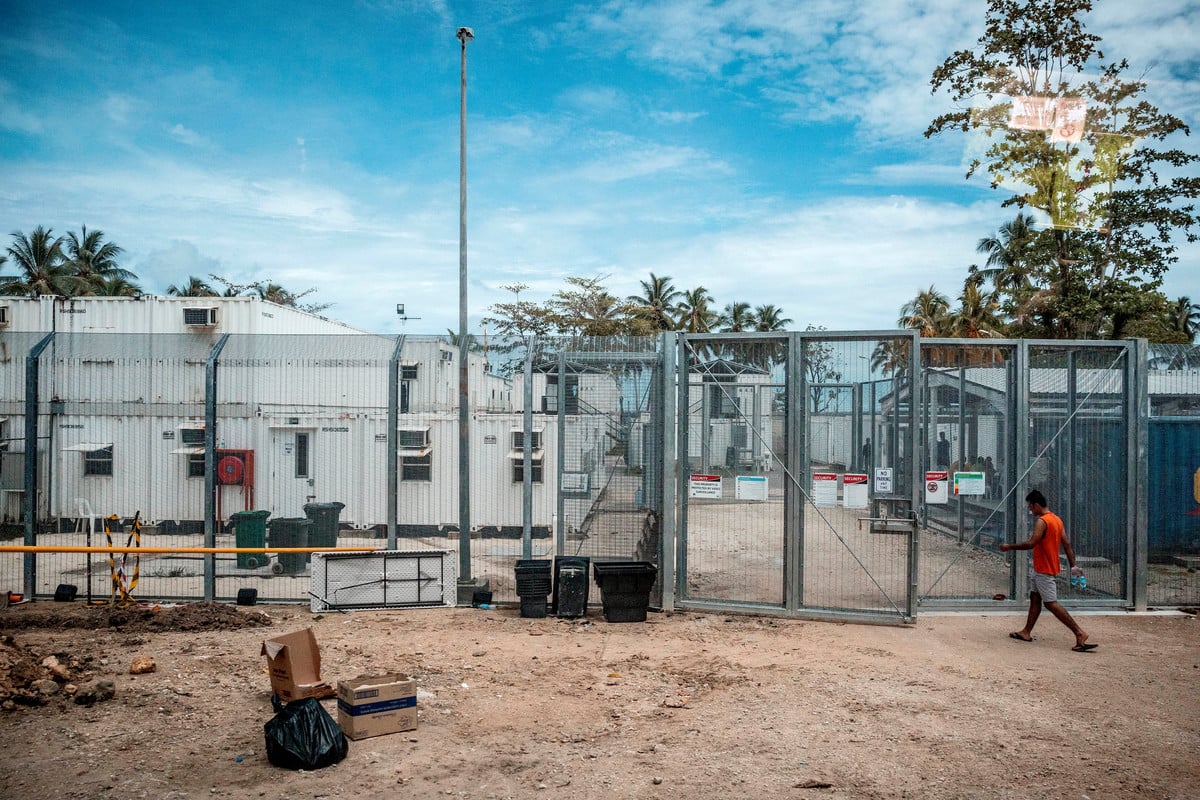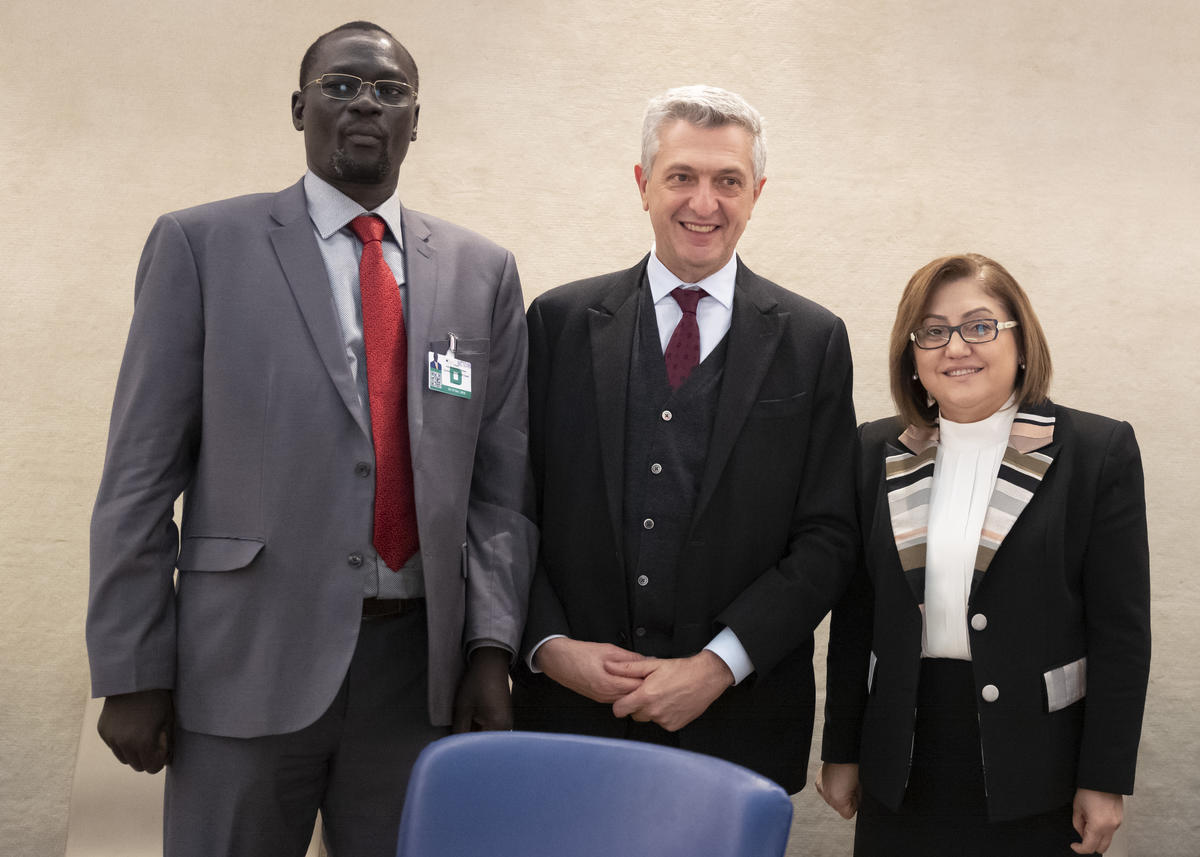UNHCR finds some progress amid problems at Manus Island processing centre
UNHCR finds some progress amid problems at Manus Island processing centre
This morning in Canberra, UNHCR released its second report on the Manus Island Regional Processing Centre in Papua New Guinea, which is currently housing some 250 asylum seekers sent there by Australia for off-shore processing.
The report is based on the findings of a UNHCR protection team that visited Manus Island from 11-13 June. The visit was to assess reception conditions at the processing centre in accordance with our mandated monitoring and advisory role under the 1951 Refugee Convention. The team met with asylum-seekers, senior officials from the Governments of Papua New Guinea and Australia, as well as staff of key service providers.
The mission found improvements since its last visit in January, but current arrangements still do not meet international protection standards for the reception and treatment of asylum-seekers. Living conditions are still harsh, processing remains slow and asylum-seekers are growing despondent over the lack of certainty about their future.
Among the improvements has been the transfer of all children and their families to Australia itself, progress towards establishing a legal framework for processing, and some improvement in the physical facilities at the processing centre. Our team also acknowledged the best endeavours of staff on site, under very challenging circumstances, to assist asylum-seekers living at the centre.
However, UNHCR's inspection also revealed continued and worrying shortcomings. Freedom of movement is still extremely limited in what continues to amount to an environment of open-ended, mandatory and, in UNHCR's view, arbitrary detention.
The team observed cramped living quarters, especially for single men housed in canvas tents. They told UNHCR that each tent accommodated four to six men and was very hot especially from late afternoon into the night. Many asylum-seekers also expressed concern about hygiene issues related to bathroom facilities and food preparation, and poor access to medical services.
The lack of certainty among asylum-seekers over their future coupled with slow progress in establishing effective processing arrangements is contributing to pervasive frustration and despondency. Left unresolved, this can increase psycho-social harm for those who are affected.
With respect to the legal rights of asylum-seekers, UNHCR's team observed that, while refugee status determination processing is set to start in the near future, changes to Papua New Guinea laws and regulations are required to ensure a fair and efficient process for all asylum-seekers in the country.
UNHCR believes that the vulnerability assessments of asylum-seekers done prior to their being moved to Manus Island should be more comprehensive and take into account the limited available services there. We are also concerned at the lack of information provided to people who are found to be refugees about when they might be moved on from the centre and provided with a solution.
Overall, UNHCR considers that the combination of a tough physical environment, restricted legal regime, and slow processing mean that existing arrangements still do not meet the required international protection standards, nor the terms of the Memorandum of Understanding agreed between the two Governments in establishing the Regional Processing Centre.
UNHCR is not a signatory to the bilateral agreement between Australia and Papua New Guinea relating to the processing of asylum seekers. Our position has always been for all asylum-seekers arriving into Australian territory, by whatever means, and wherever, to be given access to a full and efficient refugee status determination process in Australia. This would be consistent with general practice, and in line with international refugee law.
The full report, including findings and recommendations, is available at www.unhcr.org.au.
For more information on this topic, please contact:
- In Canberra (Regional): Ben Farrell on mobile +61 407 971 686
- In Bangkok: Vivian Tan (regional) on mobile +66 818 270 280
- In Geneva: Babar Baloch on mobile +41 79 557 9106








